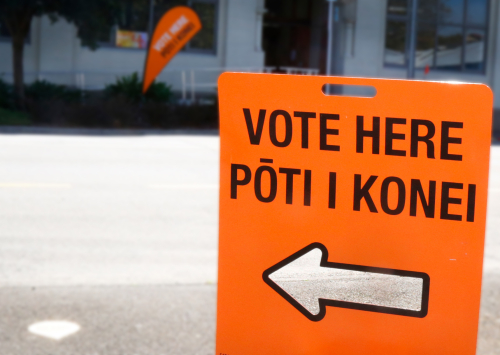

Current filter:

A decision regarding an important change for our district lies ahead of us, and I’m inviting everyone in Central Hawke’s Bay to be part of the discussion.
A formal ‘Representation Review’ must be, by law, conducted every six years by Councils to prepare their structure for the following two Local Government elections. Central Hawke’s Bay District Council is now conducting our review in time for arrangements to be in place by the 2025 election.
As part of this review, we’re considering how best to achieve democratic representation for the 25% of Central Hawke’s Bay locals who identify as Māori, many of whom are on the Māori electoral roll and don't see their people represented at the same proportion.
We have been missing the strength and numbers of these Māori voices on Council in our district. Importantly, Mana whenua (those who have long-held connection to this land) have distinct perspectives which ought to be fairly represented at the local government level. For too long, Mana whenua leadership has been held at arms-length from Councils, with structures that do not reflect Te Tiriti o Waitangi, and actively demote their views to those of ‘advisors’.
Whether Mana whenua representatives made up official Committees of Council (such as we had in the early 2000s) or were appointed to Council in roles such as Kaiarāhi Matua (that we had in place most recently) they are not a legally recognised part of decision-making. Although these structures can and do add great value to Council discussions, they do not always adequately reflect the mana of a Treaty partner. And the democratic voice of Māori is minimised.
There is another option open to us: Māori wards. A Māori ward is a form of electoral representation that allows voters who have chosen to be on the Māori roll to elect a representative, or representatives, to their local council. Think of it as the local government version of the seven Māori seats in our Parliament. The establishment of Māori wards doesn’t give Māori voters any extra say than any other voter - those on the General roll vote for the General ward seats (currently Ruahine/Aramoana and Ruahine) and those on the Māori roll vote for the Māori Ward seats. The number of seats is proportional, by population, to the makeup of our district.
In 2021, the Government made a major change to Councils’ process for considering how to improve community representation – they removed the ability to provoke a binding referendum on Māori wards. This cleared up the anomaly of non-Māori voters being able to decide that Māori couldn’t have a voice at the Council table.
Our neighbours, Hawke’s Bay Regional Council, Hastings District Council, and Tararua District Council, moved to give choice to their local Māori electors by putting Māori wards in place for the 2022 local elections. Napier City Council will also include Māori ward representation from the 2025 election. Our cousins in Wairoa had already adopted Māori wards before the 2019 local body elections. Across New Zealand, at the 2022 local elections, over 50% of regional councils and 43% of Councils had Māori constituencies or wards.
For some time, with Tamatea Mana whenua, we have been working on shared aspirations for the future of our people and place of Tamatea-Central Hawke's Bay. Reaching a shared understanding of the ‘Tamatea Way’ to guide how we want to partner and work in the future has been the topic of many of our conversations.
Councillors and I have been very clear for several years now that we will work to the direction set by our Mana whenua on this representation opportunity. Te Taiwhenua o Tamatea, which represents and works for all ten marae in Central Hawke’s Bay, sees Māori wards as an appropriate tool to express the Tamatea way forward for partnership.
My thanks to Chair Jenny Nelson-Smith and her board of Te Taiwhenua o Tamatea who have led the gathering of conversation and support amongst Mārae, Tamatea Pokai Whenua (Heretaunga Tamatea Settlement Trust) Trustees, and Ngāti Kahungunu Iwi Inc leadership. With their support, we would like to discuss what this representation opportunity looks like for the whole of the Central Hawke’s Bay community.
While Council is empowered under law to make a decision on representation options by the end of November, we believe that questions of democratic representation should always be open to respectful, informed debate.
You’ll find more information on how to make your voice heard in this week's CHB Mail, at Council hubs and libraries, and on the Council website.
11 October 2023
Disclaimers and Copyright
While every endeavour has been taken by the Central Hawke's Bay District Council to ensure that the information on this website is
accurate and up to date, Central Hawke's Bay District Council shall not be liable for any loss suffered through the use, directly or indirectly, of information on this website. Information contained has been assembled in good faith.
Some of the information available in this site is from the New Zealand Public domain and supplied by relevant
government agencies. Central Hawke's Bay District Council cannot accept any liability for its accuracy or content.
Portions of the information and material on this site, including data, pages, documents, online
graphics and images are protected by copyright, unless specifically notified to the contrary. Externally sourced
information or material is copyright to the respective provider.
© Central Hawke's Bay District Council - / +64 6 857 8060 / customerservice@chbdc.govt.nz